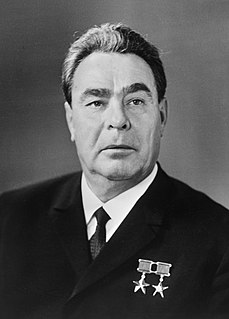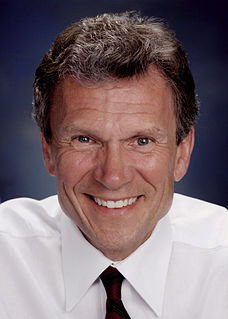A Quote by Jens Martin Skibsted
National diplomacy strategies are usually focused on promoting one's interests against others' interests. By emphasizing the global 'we' rather than the national 'I' in the climate change debate, COP 21 proved to be a case in point for a change of lenses.
Related Quotes
Climate change should not fundamentally be seen as a political or partisan issue, but it has been turned into a political football primarily by the climate deniers who have a vested interested in maintaining the status quo. That includes certain industrial interests, financial interests and political interests.
I hope President [Hamid] Karzai understands that our national security interests don't depend entirely on his decision there whether to allow a recount. Obviously the legitimacy of that government is an important component of it. My point is it shouldn't be the lynch pin for us deciding whether we're going to protect our national security interests in that region.
Communists have always viewed the national question through the prism of the class struggle, believing that its solution has to be subordinated to the interests of the Revolution, to the interests of socialism. That is why Communists and all fighters for socialism believe that the main aspect of the national question is unification of the working people, regardless of their national origin, in the common struggle against every type of oppression, and for a new social system which rules out exploitation of the working people.
I have this fantasy that in future negotiations over climate change - instead of going into that room and saying, 'I'm defending Chinese interests,' or 'I'm defending Australian interests' - there will also be an identity inside of each of the negotiators thinking, 'I'm also defending human interests.'
An ethic that emphasizes relationship and community can be concerned with protecting the individual's interests, but always with an eye to trying to reconcile those interests with those of others. An ethic emphasizing rights and autonomy should be concerned with promoting enough community to foster a motivating concern for everyone's rights, not just one's own.
Despite the international scientific community's consensus on climate change, a small number of critics continue to deny that climate change exists or that humans are causing it. Widely known as climate change "skeptics" or "deniers," these individuals are generally not climate scientists and do not debate the science with the climate scientists.
The United States is strongly committed to the IPCC process of international cooperation on global climate change. We consider it vital that the community of nations be drawn together in an orderly, disciplined, rational way to review the history of our global environment, to assess the potential for future climate change, and to develop effective programs. The state of the science, the social and economic impacts, and the appropriate strategies all are crucial components to a global resolution. The stakes here are very high; the consequences, very significant.







































